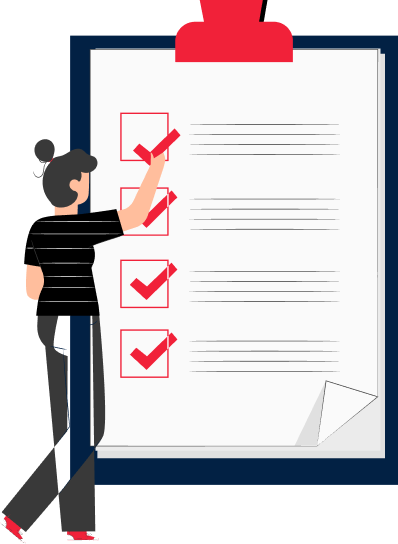The VA offers housing allowances to veterans with 100 percent disability ratings under four grant programs—Specially Adapted Housing (SAH), Special Home Adaptation (SHA), Home Improvements and Structural Alterations (HISA), and Temporary Residence Adaptation (TRA). These programs aim to provide veterans who are permanently and totally disabled with housing that accommodates their disability and helps them achieve independence.
The type of grant you are eligible for depends largely upon the type of disability that led to your 100 percent VA disability rating. Depending upon your eligibility, you can use your grant money to buy or build a new home or make significant changes to your current home. You may also be eligible for grant money to change a temporary home while waiting for a more permanent residence.
Specially Adapted Housing Grant
Specially Adapted Housing Grants (SAH) primarily help 100-percent-disabled veterans with mobility issues. For example, a veteran may need a wheelchair-accessible home to live independently. You can use the money to do things such as build ramps or widen doorways. For the 2023 fiscal year, veterans can receive up to $109,986 from an SAH grant.
Federal law requires that the home meet several minimum property requirements to ensure the main entrances and exits, primary bathroom, and the primary bedroom or sleeping area are sufficiently accessible. Requirements include things such as 36-inch-wide doorways, accessible showers and toilets, and nearby emergency exits.
Veterans can request the waiver of some of these requirements, but only if they are not feasible to meet. You cannot waive a property requirement to use that money to upgrade another part of the home.
SAH Eligibility
You can use an SAH grant if you can show that you will be buying, building, or changing your existing home. You must own the home yourself and intend it to be your permanent residence for the foreseeable future. You must also have one of the following service-connected disabilities:
- Loss or loss of use of more than one limb
- Loss or loss of use of a lower leg, along with the lasting effects of a disease or injury, such as tissue damage
- Blindness in both eyes, as measured by less than 20/200 vision
- Certain types of severe burns
- The loss or loss of use of one lower extremity post-September 11, 2001, resulting in a lack of balance or inability to walk without braces, canes, crutches, or a wheelchair
There are 120 SAH grants available each year for veterans who qualify based on the loss of one extremity after September 11, 2001. If you qualify but don’t receive the grant, you can try again in future years.
You do not have to use SAH grant money all at once. You can use money from the grant up to six times throughout your lifetime. The VA may adjust the total of your remaining grant each year based on the prevailing construction cost.
Special Home Adaptation Grant
The Special Home Adaptation Grant (SHA) is also available to qualified veterans with 100 percent permanent disability ratings who need changes to their homes because of their conditions. The program has different eligibility criteria than SAH grants. As of 2023, the maximum SHA grant is $22,036, which you can put toward altering your permanent home or buying or building a new home.
SHA Eligibility
You are eligible for an SHA grant if you or a family member own or will own the home. The VA accepts three qualifying disabilities for SHA grants:
- The loss or loss of use of both hands
- Certain severe burns
- Certain breathing or respiratory injuries
As with the SAH grant, you do not have to use your SHA grant funds all at once. You can use it up to six times to make approved changes to your home to adapt to your disability.

Home Improvements and Structural Alterations Grant
The HISA grant helps disabled veterans make home improvements necessary for treatment or disability access. The VA allows qualified improvements such as roll-in showers, lowered countertops, and improved electrical or plumbing to accommodate medical equipment.
HISA rules specifically bar some improvements, including the following:
- Exterior decks
- New construction
- Walkways to outside buildings
- Jacuzzis, spas, or hot tubs
HISA Eligibility
Veterans are eligible for a lifetime HISA grant of $6,800 if they have a service-connected disability or a compensable disability treated as if it occurred during active service. This could include a disability that happened during VA treatment or vocational rehabilitation. You also qualify if you need an accommodation to address a non-service-connected disability if you also have a service-related disability with at least a 50 percent VA disability rating.
Veterans with other disabilities and ratings may still qualify for an HISA grant of up to $2,000.

Temporary Residence Adaptation Grant
Temporary Residence Adaptation Grants (TRA) help veterans who stay with relatives while awaiting permanent placement elsewhere, such as in a veteran’s home, or while waiting for new permanent homes. It covers changes needed at the relative’s home to make it more accessible to you.
You must also qualify for an SAH or SHA grant to receive a TRA grant. As of 2023, you are eligible for a maximum TRA grant of $44,299 if you qualify for an SAH grant. If you are eligible for an SHA grant, you can receive a maximum of $7,910 through the TRA program.
TRA Eligibility
You do not have to own the temporary residence to qualify for a TRA grant. Other qualifications are the same as those for the SAH and SHA grants, depending upon which you are using as the basis for your qualification for TRA funds.

How To Apply for a VA Housing Grant
You can apply for an SAH or SHA grant online. You can also download VA Form 26-4555 and fill it out yourself or with the help of an advocate or attorney. Once you complete the form, you can mail it or bring it in person to your nearest VA regional office.
If the VA deems you eligible for an SAH or SHA grant, you are deemed automatically eligible for a TRA grant to adapt a family member’s home for your disabilities. You do not need to complete other forms besides your SAH or SHA application.
When you apply for a HISA grant for home improvements, you must submit several things with your package, including the following:
- A prescription approved or written by a VA physician including a description of the project and its medical justification
- Completed and signed VA Form 10-0103
- If you are renting, a signed and notarized statement from the owner approving the project
- An itemized estimate of costs, including labor, permits, inspections, and materials
- A color photograph of the area before the improvement
The VA may also require an inspection before approving your HISA grant. If you have questions about your eligibility for HISA, you can contact your local Prosthetic and Sensory Aids Service near you using the VA facility locator.



